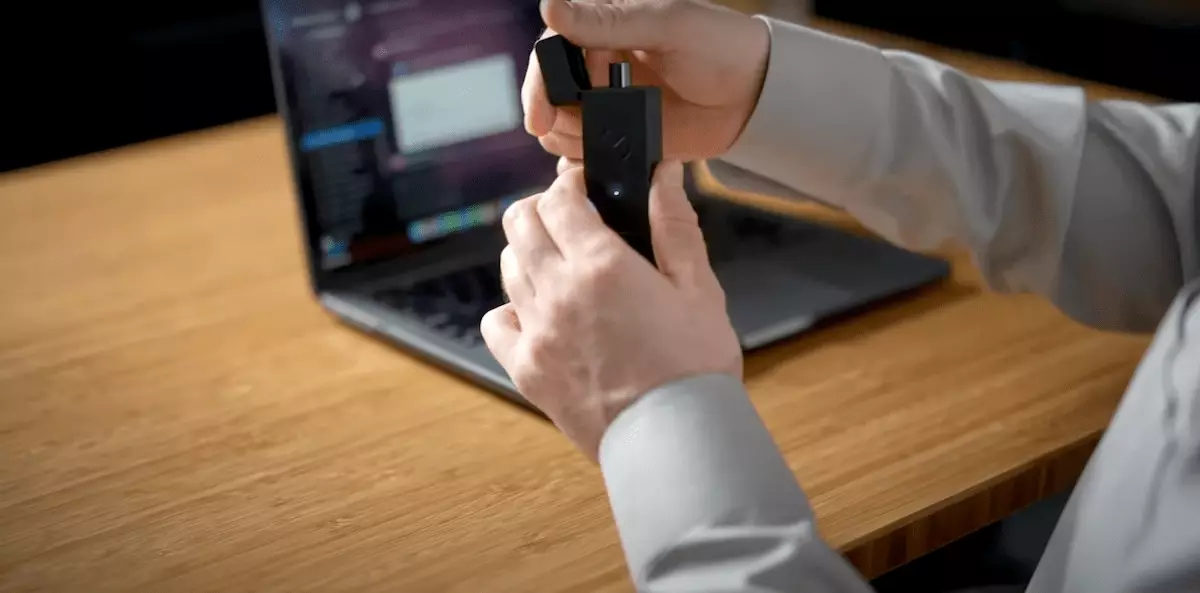In recent years, the wellness industry has seen an explosion of new tools and technologies aimed at enhancing mental and physical health. One particularly intriguing development is Moksha’s Gamified Meditation Tool, a unique device designed to revolutionize the way individuals engage with breathwork. This sleek pendant-shaped device represents a departure from traditional breathing exercises, emphasizing a gamified approach that aims to make the practice accessible and engaging for users. Developed by founders Yash Ghanekar and Jaymin Shah, the tool responds to a growing awareness of the mental health challenges many face today and offers a solution that merges practicality with modern design.
The inception of Moksha was deeply rooted in personal experiences of anxiety and loss. As Ghanekar shared, the death of a close friend exacerbated his existing anxiety and led to recurrent panic attacks. With encouragement from Shah’s brother, a physician who introduced them to the science of breathwork, the duo embarked on a mission to create a device that could help users manage their mental wellness through controlled breathing techniques. Collaborating with experts from various fields, they designed the “Beam,” a metal pendant equipped with a mouthpiece that aims to improve breath control and has already received overwhelming feedback from users dealing with a myriad of respiratory and psychological issues.
Innovative Features That Set It Apart
The standout feature of Moksha’s device is its incorporation of air pressure sensors and haptic feedback, effectively transforming the user experience of breathwork. By inhaling and exhaling through the pendant, users can receive tactile signals, indicated by vibrations, that help them maintain a proper rhythm without needing to count their breaths mentally. This intuitive design is aimed at enhancing focus, allowing users to concentrate on the experience rather than the mechanics of breathwork itself.
Moreover, the development of a companion mobile app elevates the entire experience by providing engaging breath control games and guided meditation exercises. This app not only fosters a sense of playfulness but also serves as a tracker for breathing data, enabling users to monitor their progress over time. Crucially, these innovations cater to beginners and seasoned practitioners alike, offering tailored experiences that promote longevity and adherence to breathwork practices.
Moksha’s design also consciously mimics the shape of a vape or cigarette, an intentional strategy to redirect individuals from unhealthy habits to healthier practices centered on mental health. By reframing the act of inhaling and exhaling as a beneficial exercise rather than a harmful addiction, the company hopes to capitalize on similar behaviors while promoting awareness of mental well-being. This thoughtful pivot is indicative of a wider societal move toward acknowledging and addressing prevalent mental health issues.
Though priced at $150, which might raise eyebrows considering that breathing is a natural function, Moksha positions itself competitively among other wellness devices. Comparatively, devices like Moonbird and The Shift have similar or higher price points. This suggests that consumers are willing to invest in tools that promise enhanced well-being, particularly in an age where mental health conversations are increasingly prevalent and necessary.
Additionally, Moksha is making strides to create a community around its offerings. The app introduces a gamification element that rewards users for consistent practice, offering discounts with partners like Instacart and NBA Store, incentivizing continued engagement. Such features not only promote user retention but also reflect an understanding of the societal needs for mental and emotional support.
My experience with Moksha over the past month indicates that integrating gamification into breathwork can yield tangible results, even for those who struggle to maintain regular practices. Although it hasn’t quite transformed into a daily necessity for me, I find that I gravitate towards it during moments of stress. The anticipation surrounding the launch of new games and features is also encouraging, suggesting continual growth and innovation.
Ultimately, Moksha’s device symbolizes a shift towards a more playful, engaging approach to traditional wellness practices, merging technology and mindfulness. As society continues to tackle profound mental health challenges, products like Moksha’s offer not just tools, but a pathway to deeper self-awareness and emotional resilience. As we navigate a world filled with stressors and uncertainties, innovations like these can play a critical role in transforming everyday habits into meaningful practices for a healthier, more balanced life.

